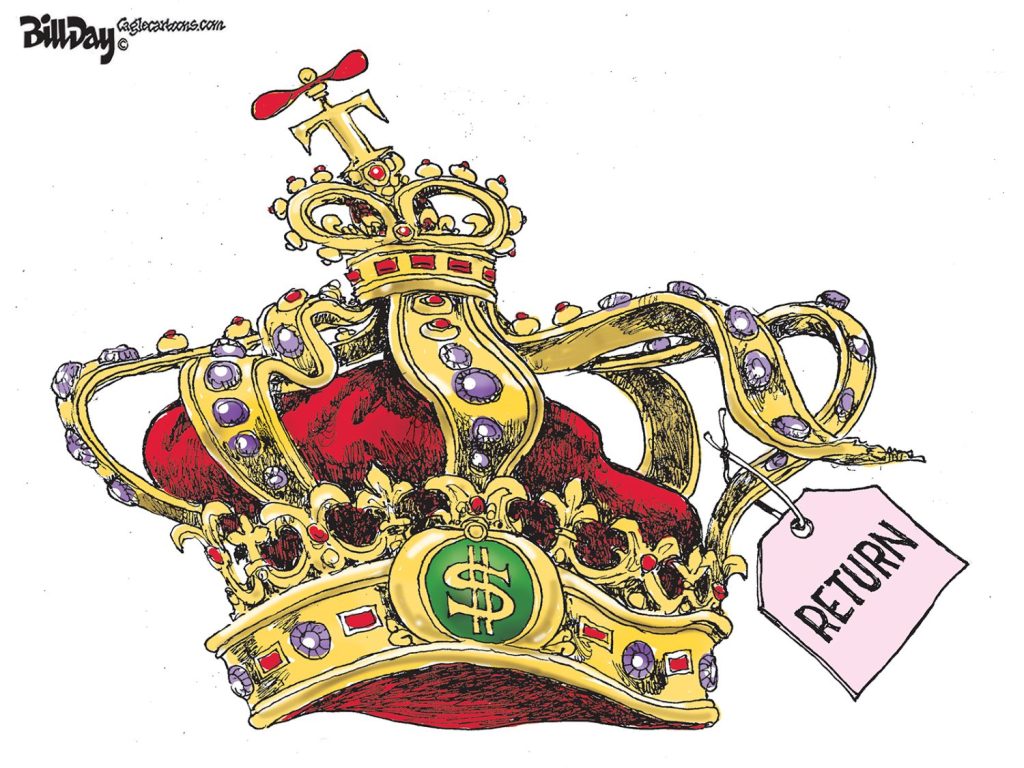From CNN:
By Diane Ravitch
Diane Ravitch is Research Professor of Education at New York University. Appointed by President Clinton, she served seven years on the National Assessment Governing Board which supervises the NAEP tests. She is the author of the best-selling book “The Death and Life of the Great American School System: How Testing and Choice Are Undermining Education,” and blogs at dianeravitch.net.
A few days ago, CNN interviewed former D.C. schools chancellor Michelle Rhee about American education. Rhee, predictably, said that American education is terrible, that test scores are flat, and that we are way behind other nations on international tests.
I disagree with Rhee. She constantly bashes American education, which is one of the pillars of our democratic society. Our public schools educate 90% of the population, and we should give the public schools some of the credit for our nation’s accomplishments as the largest economy and the greatest engine of technological innovation in the world.
It’s time to set the record straight. The only valid measure of academic performance in our schools is the federal test called the National Assessment of Educational Progress (NAEP). NAEP has been testing American students since the early 1970s.
The NAEP test scores of American students are at their highest point in history: for black students, white students, Hispanic students, and Asian students.
They are at their highest point in history in fourth grade and in eighth grade, in reading and math.
As for the international test scores, which Rhee loves to recite to knock our public schools, she is obviously unaware that our nation has never had high scores on those tests. When the first international test was given in 1964, our students ranked 11th out of 12 nations. Yet our nation went on to become the most powerful economy in the world.
In the 50 years since then, we have regularly scored in the bottom quartile on the international tests or at best, at the international average. Clearly, the international scores do not predict our future as we are the dominant economy in the world despite the scores.
Why are our international rankings low? Our test scores are dragged down by poverty. On the latest international test, called PISA, our schools with low poverty had scores higher than those of Japan, Finland, and other high-scoring nations. American schools in which as many as 25% of the students are poor had scores equivalent to the top-scoring nations. As the poverty level in the school rises, the scores fall.
Rhee ignores the one statistic where the United States is number one. We have the highest child poverty rate of any advanced nation in the world. Nearly 25% of our children live in poverty.
This is a scandal. Family poverty is the most reliable predictor of low test scores. How can we compare ourselves to nations like Finland where less than 5% of the children live in poverty?
Rhee and her fellow reformers say that poverty is just an excuse, but it is not. Poverty is a harsh fact of life.
Children who are homeless, who have asthma, who have vision problems or hearing problems will have trouble concentrating on their studies. Children who have a toothache may not do well on testing day. Children who don’t see a doctor when they are sick will not be able to perform well on tests. Children who live in squalor will be distracted from their schoolwork.
Of course, we should have great teachers in every classroom, but the negative rhetoric that now comes from Rhee and every media outlet and movies like “Waiting for ‘Superman’ ” are demoralizing teachers and causing many excellent teachers to leave the profession.
Rhee believes in merit pay but she is unaware that merit pay has been tried again and again for nearly a century. It has never worked. It failed recently in New York City, Chicago, and Nashville. In Nashville, teachers were offered a $15,000 bonus to raise test scores. It didn’t make a difference.
Merit pay fails because teachers are doing the best they can with or without a bonus. Merit pay destroys teamwork and collaboration in the school. Teachers work together; they are not in an individual sport, trying to be first.
Merit pay fails, as does evaluation by test scores, because they both compel teachers to teach to the test and ignore whatever is not tested, like the arts and physical education. Such policies harm the quality of education. No elite school—not Andover or Exeter or Sidwell Friends—evaluates its teachers by the scores of their students on standardized tests. Nor do any of the high-performing nations.
Rhee and the corporate reform movement rely on the outdated behaviorist theories of the early 20th century. Modern cognitive psychology recognizes that intrinsic rewards are far more powerful than extrinsic rewards. People do their best when motivated by idealism and by their freedom to exercise their professional judgment.
The best organizations today recognize the importance of building a strong culture in the workplace—not with carrots and sticks—but with respect and collaboration. Andrea Gabor, the Bloomberg Professor of Business Journalism at Baruch College in New York City, recently wrote on my blog: “As W. Edwards Deming, a leading management expert and critic of merit pay, once put it: ‘The only reason an organization has dead wood is that management either hired dead wood or it hired live wood and killed it. Merit pay, by dividing and demoralizing employees, is a good way to erode initiative and overall quality.’”
Our teachers need our support. Let’s put an end to the war on teachers in general and on experienced teachers in particular. No profession can exist without experienced practitioners. Teachers need tenure so they have academic freedom to teach controversial issues.
Parents must be involved in helping their kids succeed. Research is clear that what parents do matters even more than what teachers do. Parents affect their children’s attitudes, behavior, and willingness to study and learn.
Our students and families and communities need support too. If reformers really cared about children, they would build a health clinic in every school. That would do more to improve test scores than all the teacher evaluation schemes and merit pay plans that the reformers are now imposing, without a shred of evidence.
We can improve our schools. We can improve our society. We must work on both at the same time.




Good luck getting this message out past the anti-public education memes.
Last three paragraphs are the most important. The message is to Improve “community” i.e. parenting support groups and visiting nurses; early childhood development programs (ages 0-3); neighborhood based social services like after school primary care clinics, libraries, recreation facilities near schools as part of campus-like setting; decent, safe, affordable housing; neighborhood transportation.
This takes a comprehensive approach involving land use planning and social services programming for all of Memphis’ neighborhoods.
The Memphis & Shelby County Division of Planning & Development (DPD) should have full planning authority reporting directly to two Mayors as a “staff” agency. New school board and other city county agencies should be mandated to use DPD as their planning arm (not decision-making), so that a big picture emerges for the elected officials to use.
One thing that WON’T be done is an effective plan to attack the REAL problem in Memphis.
Public schools know exactly who the problem disruptions are in every class. They do nothing about them because the system is set up that they can’t on purpose.
Public Education in Memphis is a dubious effort by the system because of that.
What needs to happen is the problems need to be bussed to a different type of school more equipped to deal with their discipline issues. There is a ton of undiagnosed PTSD and personality disorders among poor students.
ALL STUDENTS need to go through a series of courses on HOW TO LEARN EFFECTIVELY at the beginning of the year. Teachers and administrators should also be required to go through that as classes get sorted out. Even the kids who are disciplinary problems can benefit from that course.
Right now at many MCS schools, students have been routed to courses that have no continuity to their previous year’s education and career path. That shows an unbelievable lack of care for the students by the administration and everyone else involved.
Early childhood support is great, but, the policy of abandoning support for those kids who did make it to high school in poor neighborhoods is inhuman.
Sending kids to school and not teaching them HOW to learn effectively is STUPID. It make no sense at all to do that and expect results beyond predictable failure.
Keeping multiple disciplinary problems in the regular classroom by policy is also STUPID if you’re expecting results better than abysmal failure.
I’ve been in a few public high schools in Memphis and quite a few of them look like abandoned buildings with high school students in them, ceilings fallen in, non working ac units, non working window blinds, windows falling out.
Unkept landscaping abounds = MCS schools being a BAD NEIGHBOR and bringing property values down.
No gardens, no revolutionary things to promote the future, as if everyone gave up on it. Myopic focus IT jobs, well there is a huge shift in energy tech and we have no courses is solar energy?
WHO is running that hot mess?
Teaching is hard work and long hours. If you don’t love the job and teach from a position of loving the students AS SUCH, you need to quit, BUT if the administration is actively causing this stuff, THEY need to be removed!
I agree with Finegold Hasava. Our schools only reflect the problems with our community. To blame this on the schools and teachers is not fair. I talked with a friend who teaches in a Memphis school. When I asked her if she had homeless children in her class, she told me of a colleague who had been written up for allowing a homeless child to fall asleep in her class. My friend now wakes these children up and make them stand up through class. She justified the cruelty to herself by saying she had to help make them tough for what they would encounter in the world. We are all victims of our system and it makes me so sad.